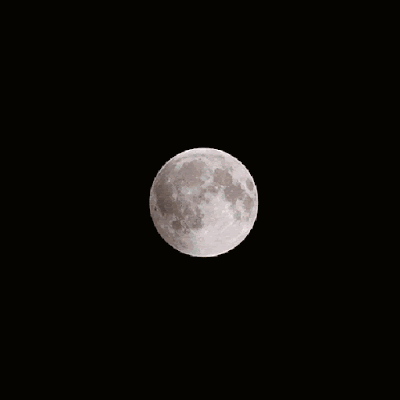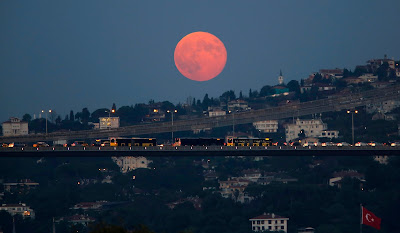There will be two supermoons on the first and last night of January, and the second supermoon will have a "special" red light. On the 31st of this month, when you look up at the sky, you will find that the moon is not like any moon you have ever seen. The total lunar eclipse will appear on the supermoon, and the full moon eclipse will be seen from western North America to the Pacific and East Asia.
"Supermoon" means a full moon that is 14% bigger and 30% brighter than the usual full moon, which appears when the lunar full moon is closest to Earth's orbit. The orbit of the Moon, orbiting the Earth, is oblique, so it usually falls beneath the shadow of the Earth. According to scientists at NASA, nearly two full moonsets each year are often perfectly integrated with the Earth, and the sun shields Earth's shadow from the sun's rays, which are usually reflected on the moon.
"Blood moon" usually occurs when the total solar eclipse occurs. When the earth is on a straight line between the moon and the sun, it covers the direct sunlight. However, there are still some sun rays bypassing the edge of the earth. After being filtered by the Earth's atmosphere, purple, blue, green and yellow light are absorbed, and thus a strange red light is projected onto the moon to form a "blood moon". This mysterious appearance usually has a slightly reddish color due to the atmosphere doubling the light.
The blue moon has no relationship with the color of the moon but refers to the second full moon when there are two full moons in a month, which is also very rare.
There will be a full moon, a total lunar eclipse, a blue moon, a blood moon and a supermoon that night. Of course, the rare astronomical phenomenon can not be missed. So, prepare the monocular telescope and a barrel of beer, bring your friends, and witness the marvelous phenomenon that has not appeared in more than 150 years together.


没有评论:
发表评论